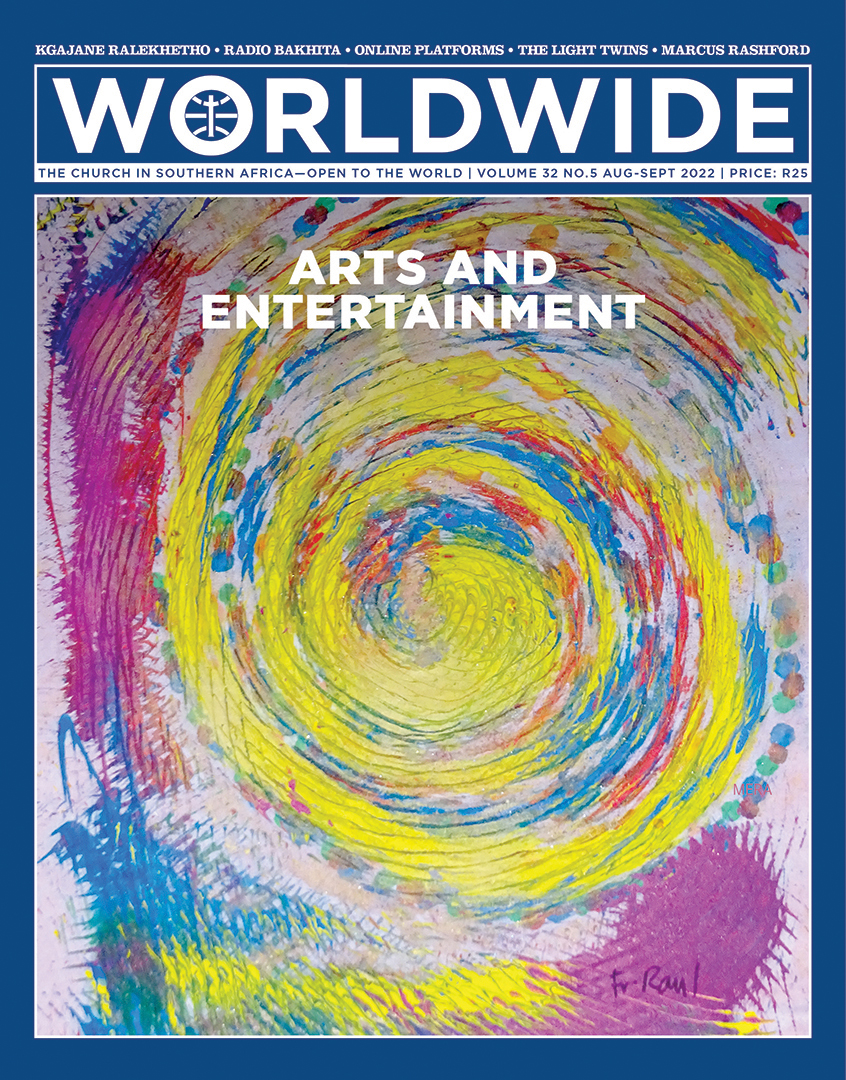
ARTS AND ENTERTAINMENT
This painting represents the turmoil experienced during a time of crisis. Typhoon is a symbol of anxiety, chaos, destruction and struggle. However, once those trial moments are surmounted, the inner energy of the typhoon brings transformation, putting life in order and strengthening one’s spirit. Emotional typhoon seems to tear life apart when it hits. One can’t turn away from it, but once it is over, it brings new potential; visions become clear and one sees brighter days ahead.
PAINTING BY FR RAUL TABARANZA MCCJ
PROFILE • MARCUS RASHFORD
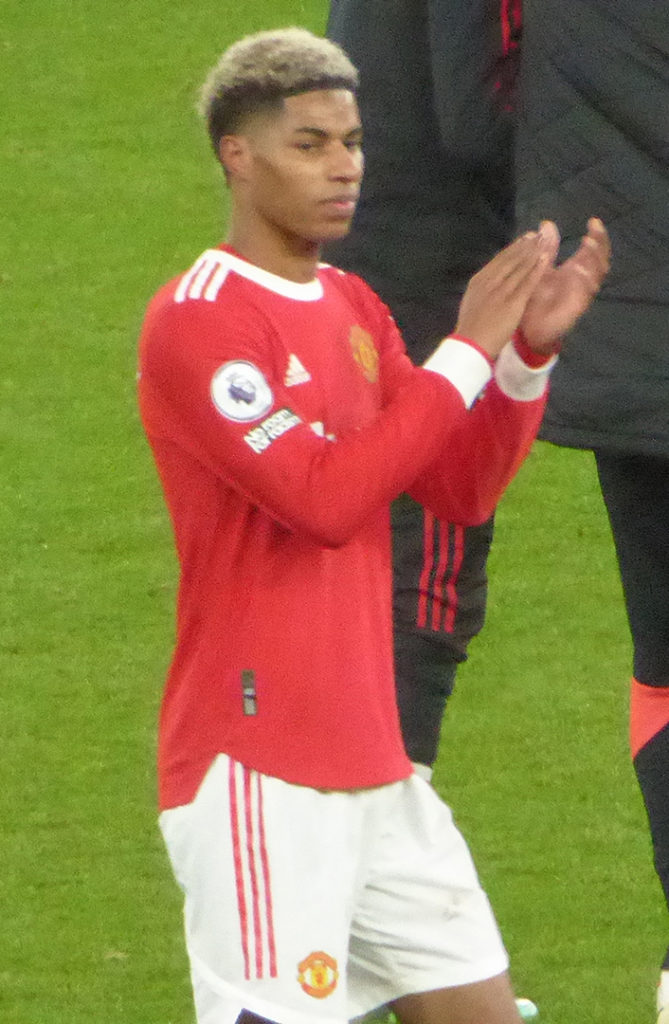
A voice for children
A world-class football player, who has known hunger as a child, has successfully led a campaign in UK to end what he calls the “child hunger pandemic”
BY Marian Pallister | Chair of Pax Christi Scotland
DEPENDING ON which set of figures you choose, the UK ranks as the fifth or sixth richest country in the world and it has a record total of 177 billionaires, according to the Sunday Times Rich List published in May 2022. Yet according to the UK government’s own figures, there were 3.9 million children living in poverty in the UK in 2020-2021. Anecdotally, that figure has risen in the past year. According to the Child Poverty Action Group (CPAG), that is 27% of the UK’s children, or eight children in a classroom of 30. Almost half of all lone-parent families are living in poverty, and CPAG says that children from Black and minority ethnic groups are more likely to be living in poverty: 46%, compared with 26% of children in white British families.
Between 2008/09 and 2020/21, the number of foodbank users in the United Kingdom increased every year, from just under 26 000 to more than 2.56 million. As we move into a post-pandemic period, approximately 2.17 million people are still accessing a foodbank and that is set to rise again as the worldwide food and economic crisis bites.
There are even more unofficial places where people can access free food than the recorded UK foodbanks. It isn’t just people out of work who use them: 75% of children growing up in poverty, live in a household where at least one person works, and foodbanks report that health workers and many ‘professionals’ have had to turn to charity to feed their families.
During the pandemic there were government measures to keep people in jobs—but 2.5 million children experienced food insecurity between February and July 2021, and one million children in the UK living in poverty were not eligible for free school meals.
Challenging the government
That is when a remarkable young man stepped in and challenged the UK government. He is asking that not only would children living in poverty receive school meals during term time, but that during the school holidays—a particularly trying time for families facing economic difficulties because of the extra mouths to feed, the extra childcare costs—free school meals would be available.
That young man is Marcus Rashford, Manchester United and England footballer, who said: “We must act with urgency to stabilise the households of our vulnerable children. No child in the UK should be going to bed hungry. Whatever your feeling, opinion, or judgement, food poverty is never the child’s fault. Let us protect our young. Let us wrap arms around each other and stand together to say that this is unacceptable, that we are united in protecting our children. Together we can end this problem.”
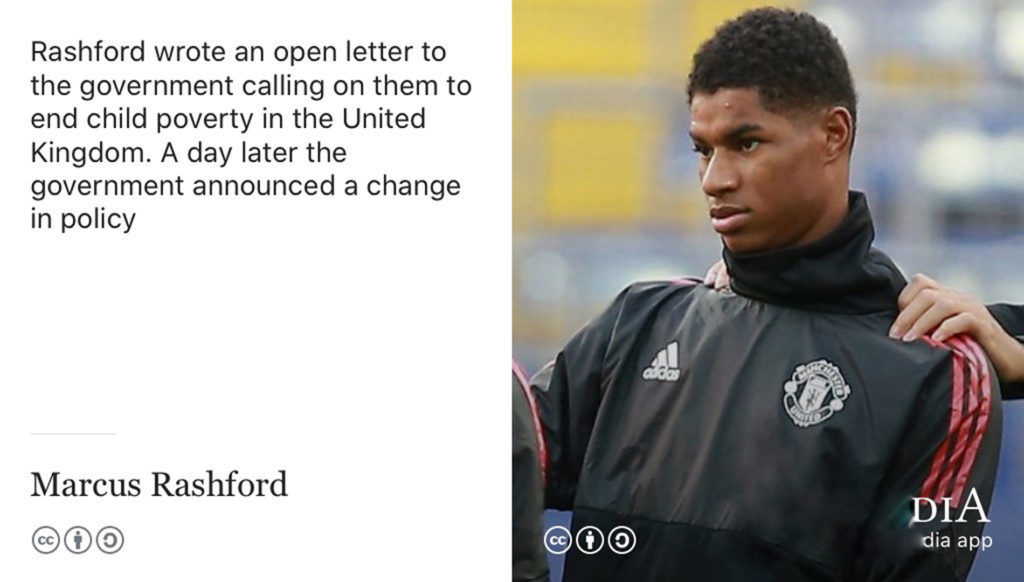
The government’s first efforts to provide meals during the school holidays were frankly pathetic, and pictures of inadequate provisions dominated the headlines in the summer of 2020.
Marcus Rashford persisted. The publicity his campaign generated meant the UK public backed his demands (always made eloquently and with the greatest politeness), and the government had to up its game. In September 2020, just a month short of his 23rd birthday, Marcus formed the Child Food Poverty Task Force, a coalition of charities and food businesses calling on government to implement three recommendations from the National Food Strategy. In October 2020, he launched a parliamentary petition to end child food poverty, which over 1.1 million people signed.
The government reacted positively to two of the National Food Strategy recommendations, extending a holiday activity and food programme to all areas of England, to all children who qualified for free school meals (Scotland and Wales have their own more generous provision), and increasing the value of vouchers labelled ‘Healthy Start’. It refused, however, to expand free school meals to all under-16s whose parent or guardian received a particular state benefit.
“Whatever your feeling, opinion, or judgement, food poverty is never the child’s fault. Let us protect our young”
You would have thought that was enough effort by a young man busy reaching the heights of his footballing career. But Marcus Rashford was not planning to let go of this campaign. In September 2021, he was telling the nation that child food poverty was getting “devastatingly” worse. He asked the public to write to their members of parliament seeking to end what he called a “child hunger pandemic”.
Perhaps the government thought he would call it a day when they “rewarded” him with an MBE (Member of the Order of the British Empire medal). Perhaps they were forgetting that he knew far more than all the well-off, well-paid members of parliament what a “child hunger pandemic” meant to the children he was campaigning for.
An inspiration for many youngsters
His was not just rhetoric. Marcus Rashford and his siblings had endured all that he was now placing before the UK public and its government. He had known hunger as a child. He had seen his mother struggle to feed her family, working at several jobs yet never earning what could put enough food on the table. He was not doing this for a medal. He was doing it for every child suffering as he had done.
Marcus was born in Wythenshawe, a town near the English city of Manchester, on 31 October 1997 to Robert and Melanie Rashford. He has two brothers, Dwaine and Dane, and two sisters—Chantelle and Claire. There is a half-sister, Tamara, through his father, who left Melanie when the children were very young.
Marcus’s football skills did not take long to emerge. At the age of five, he was playing for Fletcher Moss Rangers, a little local amateur junior club. By the age of seven, he had joined the world-renowned Manchester United pre-academy programme, followed by the club’s academy programme. He has paid tribute to his mother, Melanie, for pushing to have him accepted into the academy a year early to help him escape growing up in their low-income family.
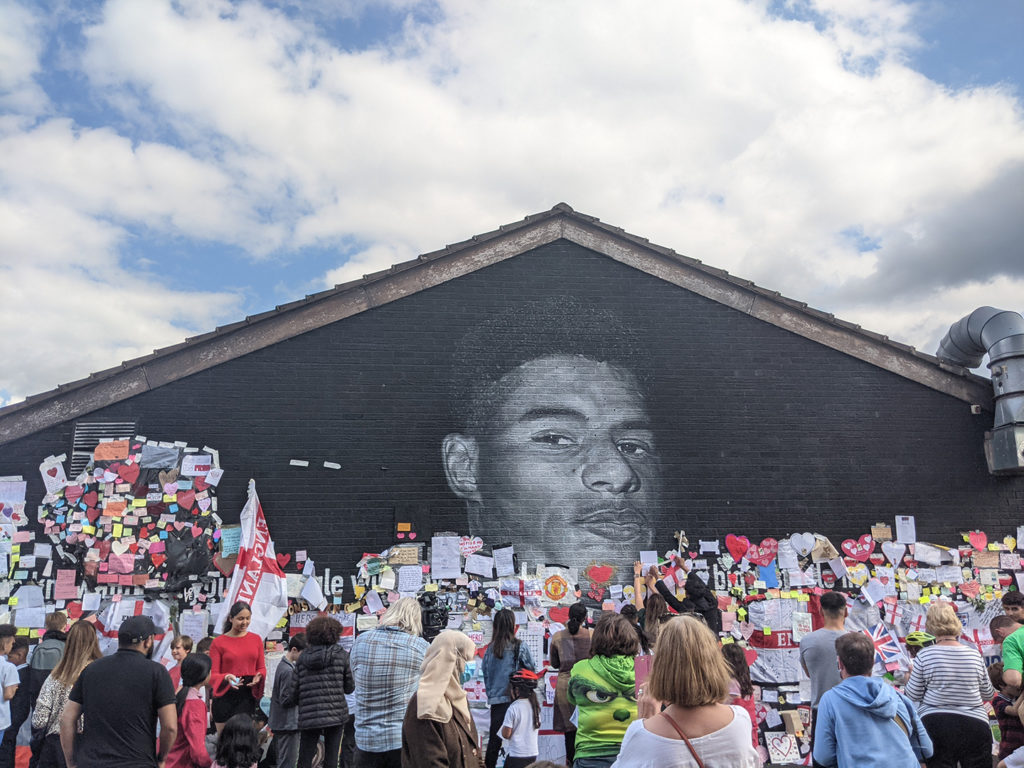
He explained, “The programme that I started at 11 years old, you’re supposed to start it at 12 years old. It basically gives you accommodation closer to the training facilities and a new school. She worked hard to push it forward, because she knew that for me it was the step I needed to take. I needed to be eating the right foods and I needed to be close to my teammates and my new school friends.”
When his campaign for today’s poor children began to succeed, he took no credit, saying it was his Mum’s day. He remembers going hungry as a child, but stresses it was through no fault of his family.
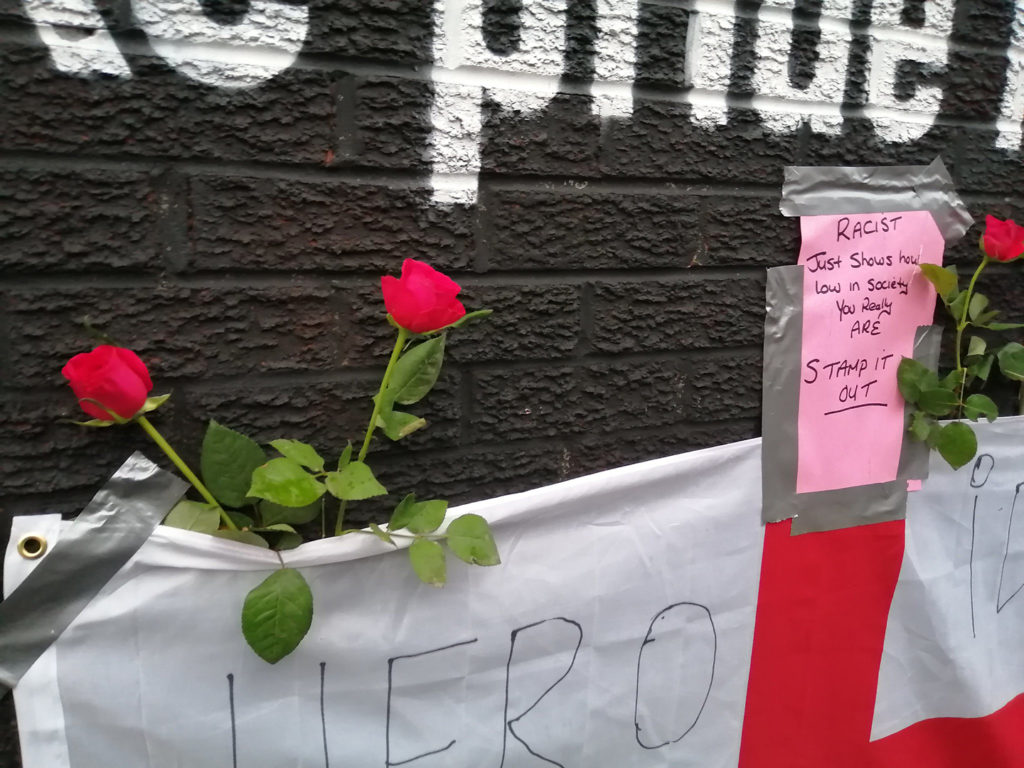
The Manchester United Academy supported Marcus in his studies for a Business and Technology Education Council National Diploma in Sport as well as turning him into a world-class player. He was still playing with the Manchester United under-18s when he was asked to join the first team. But cataloguing his subsequent football career belongs elsewhere, because this is a young man who has not been in the headlines solely because of his successes on the field, nor for the money he’s earned, nor for glamorous girlfriends—the stuff of most footballing heroes.
He has inspired many youngsters to step into his football boots also because of his plain-speaking advice to work and train hard
He has no doubt inspired many youngsters to step into his football boots, not only because of his successes but also because of his plain-speaking advice to work hard and train hard. He surely inspired many who have never watched a game of football when he said, “Political affiliations aside, can we not all agree that no child should be going to bed hungry?” and, “These children matter—and as long as they don’t have a voice, they will have mine.”
So many children facing the realities of being Black, from a one-parent family, and poor, find themselves in trouble rather than receiving a medal from Prince William. What were the influences that directed Marcus Rashford to become an activist and philanthropist? He has put his money where his mouth is, investing his own money in the projects he supports.
Openly speaking of his faith in God
Asked to speak to members of the UK parliament, he encapsulated the Rashford childhood: “The man you see before you is a product of her [his mother’s] love and care. I have friends who are from middle-class backgrounds who have never experienced a small percentage of the love I have gotten from my mum: a single parent who would sacrifice everything she had for our happiness.”
It is not easy to admit to a poverty-stricken childhood, but Marcus has spoken lovingly and proudly of his mother working at a number of jobs, skipping meals so that the children had food.
“These children matter, and as long as they don’t have a voice, they will have mine”
It is not easy to talk about the racist abuse that he and other black players regularly experience, but Marcus refuses to be riled by it. Last year after particularly offensive insults, he responded, “The communities that always wrapped their arms around me continue to hold me up. I am Marcus Rashford, 23-year-old black man from Withington and Wythenshawe, South Manchester. If I have nothing else, I have that.”
Unlike many young people in the public eye, he isn’t afraid to speak of his faith. That he is “definitely religious” comes, he says, from his mother. “The faith we have in God is shown by the people that we are,” he adds, “For me and my family, that’s definitely the case—if you could see our lives 15–20 years ago to where we are now, it’s impossible not to have faith in God and all He does for us.”
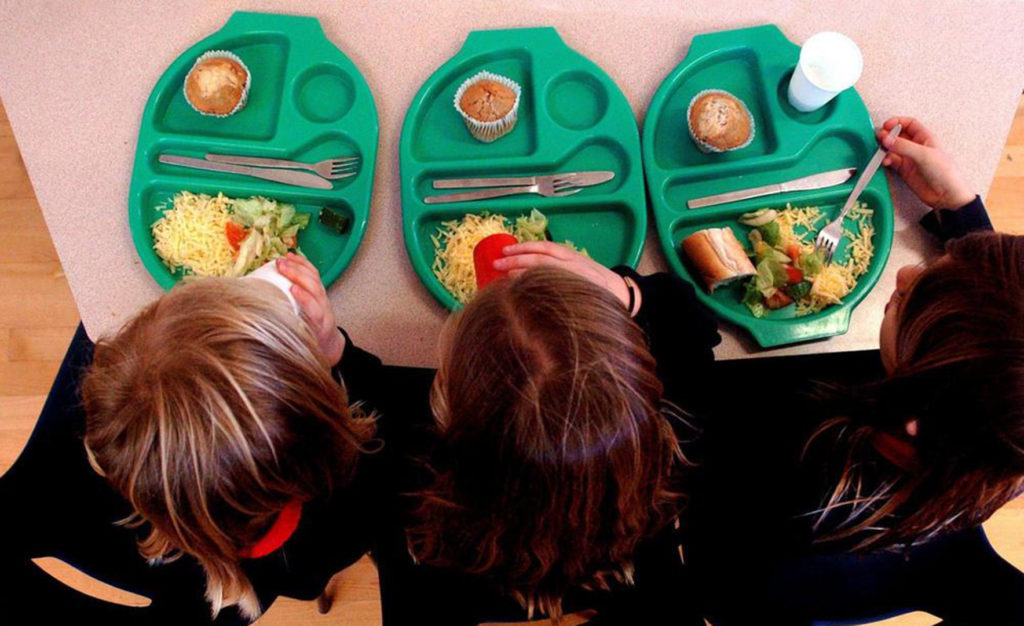
He also knows how to grab the public imagination—even if he has had to work a lot harder to convince the UK government.
He said, “You can fill 27 Wembley stadiums with the 2.5 million children that are struggling to know where their next meal might be coming from today. What is it going to take for these children to be prioritised? Instead of removing support through social security, we should be focusing efforts on developing a sustainable long-term road map out of this child hunger pandemic.”
In March 2022, his child poverty campaign won a victory when the UK government announced it would permanently allow children from families with no recourse to public funds access to free school meals.
Another step forward
Little wonder he got that medal. Little wonder Manchester University gave him an honorary doctorate. Whatever his footballing career brings, this young man—who has now made sure food is on the table for so many children—will surely be heard in the public arena for many years to come: a voice for children.

